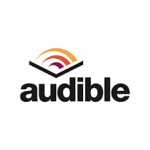Brian K. Friesen's Blog
June 6, 2020
April 16, 2019
Other Good Poems
[image error]
Of the poetry collections I own, none is more notated, dog-eared and revisited than the faded-blue book edited by Garrison Keillor called: Good Poems. Indeed, it was one of the first collections of poems I ever purchased. So, I was recently chastened, challenged, and properly gob-smacked upon hearing Jericho Brown’s lecture at AWP from 2017 (You can find it here). In it, he reads a searing letter penned by Rita Dove that questions the paltry number of African-American poets represented in Keillor’s collection of 294 poems (3, and all of them dead, and one of them a blues singer, with not a single Hispanic or Native American poet to be found). This collection doesn’t even meet the (slightly) more diverse representation of poets in Keillor’s The Writer’s Almanac radio series (canceled a couple of years ago and recently revived as a podcast).
Perhaps Rita Dove’s response to the Good Poems collection–or the larger cultural shift that is creating space for marginalized voices– has brought changes to The Writer’s Almanac. If this recent April 4, 2019 episode is an indication, there is some expansion happening in that podcast in the decade or more since the release of Keillor’s first collection of Good Poems (there are subsequent collections: Good Poems for Hard Times, and Good Poems: American Places).
I listen to The Writer’s Almanac every day, but, thanks to collections by Rita Dove, Jericho Brown, Ruben Quesada, Ross Gay, Jose Olivarez, Kaveh Akbar, Natasha Oladokun, and Naomi Shihab Nye, I’m being refreshed by poets who represent the wider landscape of human experience. Tracy K. Smith’s daily podcast, The Slowdown, is another daily listen for me, and it offers a welcome balance of perspectives from voices both familiar and unfamiliar (to me). See also these other podcasts below.**
Hearing daily from Tracy K. Smith is opening windows in me and letting in some much-needed fresh air. I have blind spots in my exploration of poets, especially poets who explore their own history with Christian faith. But is “blind spot” even the right metaphor to use here? How big can a blind spot be? How does it expand to become veritable blindness? I have my antenna out, always hoping to discover writers who wrestle with faith, who wrestle against faith, or wrestle in faith, or toward faith, and yet I have passed swiftly by the buried treasures of those unapologetic artists and wrestlers of color in favor of more familiar voices that speak what my itching ears want to hear.
What draws us to certain artists or works of art beyond the search for what feels familiar? To be honest, I’m too familiar with the disappointment that comes when I don’t find what I am looking for in a poem or a story. When I don’t find what “rings true” for me. But what informs this “truth ringing?” My predispositions. My preferences. My experience. My maleness. my whiteness. My curiosity (or lack of it). Poems that are designed to comfort people like me. My propensity to avoid challenge. My aversion to intellectual and spiritual hazards: past hurts, fears, shame, mirrors, whatever shines a light on my flaws, whatever seems smarter than me. Or I might succumb to plain old laziness: an uncomplicated avoidance of effort. Especially for me, a Christian, there are large temple-like pillars I tend to navigate around: portrayals of evil, ugliness, poems that evoke fear, rage, sexual expression, or provocative poems that carry messages I find unpalatable or that celebrate non-Christian religious perspectives. The immediate, unthinking, gut-level response to what passes into my field of vision too often informs what I open my mind and spirit to.
What are “good poems” beyond my own familiar, immediate family of poets? What unfamiliar spaces and voices might reveal what it is that I say I’m looking for? The time I’ve spent in Keillor’s Good Poems collection, while far from being time lost, is also a habit, a revisiting of all that I find familiar and comfortable. Perhaps Keillor’s blue book of “good poems” has been a training ground of sorts for me. A launching pad. Or maybe it’s a like a house I grew up in. A house in need of a new kitchen. Or maybe it’s one of many boats I’ve traveled in. Or perhaps it’s like a familiar island in an archipelago where I can set anchor, disembark, and explore other islands in a wider, bluer landscape.
* Kaveh Akbar image from The Paris Review
Rita Dove image by John Sokol
Tracy K. Smith image by Devin Symons
Jericho Brown image
** Poetry Off the Shelf, and DUAL Poetry Podcast, The Poetry Gods
August 21, 2018
Interview: On Producing the Audiobook for At the Waterline
[image error]
Here is a recent interview I gave to Ooligan Press about my experience with the production of the audiobook version of At the Waterline.
July 13, 2018
Support Your Local Bookstores with Your Audiobook Listening
[image error]
Thanks to Libro.fm, you can now allow your audiobook purchases to benefit your favorite brick-and-mortar bookstore. Browse for your local bookstore on their website here:
February 20, 2018
The Ways of White People
[image error]
In Langston Hughes’ collection of short stories, The Ways of White Folks, the old is fresh and young again.
After finishing Langston Hughes’ The Ways of White Folks, I’m now convinced that Hughes is one of the most under-recognized fiction-talents of the 20th century. Whatever the critical hangups are for digging deeper into Hughes’ fiction writing, it is time to recognize the timeless poignancy of Langston’s non-poetry work.
His striking, nuanced depictions of racial tensions in communities all around the United States approach the dexterity and efficiency of Flannery O’Connor’s, short stories. With the resurgence of racial tensions in the early twenty-first century, Hughes’ fiction deserves to be an influence on a new generation of novelists and short story writers.
November 4, 2017
Audiobook Version of At the Waterline
The audiobook version of At the Waterline is now available at many online, streaming and audiobook-membership services. If you have a subscription to one of the services below feel free to obtain the audio-novel there. My preference is that you go with Libro.fm, a service that many independent bookstores use to sell audiobooks. I encourage you to visit their list of indie bookstores and purchase At the Waterline through your local bookstore. Give your favorite brick-and-mortar bookshop a boost!












[image error]
Direct links to At the Waterline through the audiobook services listed above:
Audiobooks.com: https://www.audiobooks.com/audiobook/at-the-waterline-stories-from-the-columbia-river/296243
Hoopla (service used by Multnomah County library): https://www.hoopladigital.com/title/11926537
Downpour: https://www.downpour.com/at-the-waterline?sp=215629
Scribd: https://www.scribd.com/audiobook/354910521/At-the-Waterline-Stories-from-the-Columbia-River
Playster: https://play.playster.com/audiobooks/1001800000000168886/at-the-waterline-brian-k-friesen
B&N Nook Audiobooks: https://www.nookaudiobooks.com/audiobook/168886/at-the-waterline
Libro.fm: https://libro.fm/search?utf8=%E2%9C&q=at+the+waterline
Audiobooks Now: https://www.audiobooksnow.com/audiobook/at-the-waterline-stories-from-the-columbia-river/1784035/
Book Mate (mobile app)
Filed under: Uncategorized








September 18, 2017
Brian K. Friesen | Eleven PDX Magazine – Music, Community, and Culture in Portland, OR.
Source: Brian K. Friesen | Eleven PDX Magazine – Music, Community, and Culture in Portland, OR.
Filed under: Uncategorized








September 2, 2017
My Review of “The Ocean in My Ears” by Meagan Macvie
Meagan Macvie quickly reveals her talents as a writer in the opening pages of her debut novel: The Ocean in my Ears. There are moments of lucid prose that gave me pause with their rhythms and beauty and complexity. More often than that, though, I found myself lost in the characters, the dynamics between them, their choices and interactions. The traditions of the stifling Alaskan town threaten to send the high-school-age characters in this story down well-worn, rutted paths. But what happens as the story unfolds is far from predictable. We find as many surprises as there are dangers; as many moments of deep connection as there are moments of betrayal. I was utterly smitten with compassion and concern for the main character, Meri. Her increasing thoughtfulness and desperation in the stark environment around her make for as compelling a characterization as I have read in quite a long while. You should read this book. It is one that sticks with you. You may find yourself, as I did, unable to move quickly on to other reading activities–unwilling to leave these characters and this Alaskan landscape behind.
Filed under: american fiction, Contemporary Fiction, fiction, Uncategorized Tagged: Alaska, Alaska Fiction, art, book, book review, books, fiction, meagan macvie, meaganmacvie, novel, nw writers, nwwriters, YA Fiction








August 16, 2017
Watch “Brian K. Friesen Reading at Powell’s Books on Hawthorne, 8/17/2017” on YouTube
August 9, 2017
Reading in Seattle on 8/10/2017
I will be reading at Third Place Books the Lake Forest Park location, Thursday evening at 7pm in Seattle, Washington. If you go to the Third Place Books home page, you’ll see Alan Alda. And then me somewhere below that. Hope to see you there!
[image error]
Filed under: Uncategorized



















